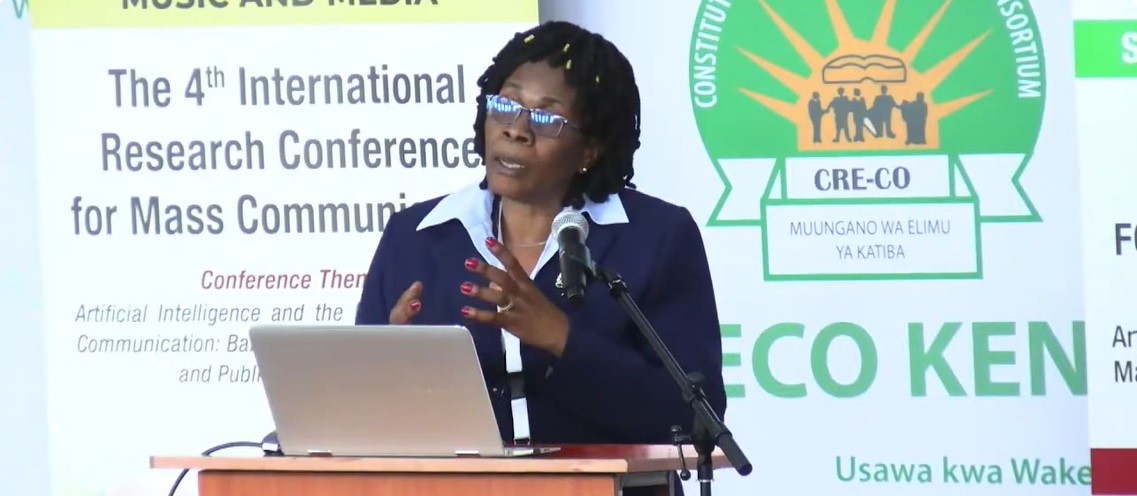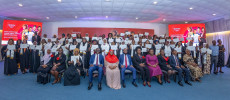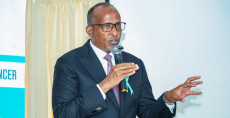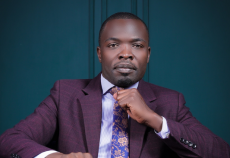- AI is both an opportunity and a threat. It is reshaping our industry at a pace we can barely keep up with. But Africa has a chance to leapfrog ahead by embedding ethical values, policy safeguards, and cultural wisdom into AI from the start
As Artificial Intelligence (AI) continues to reshape the global media and communication landscape, Kenya’s academic and political leaders are coalescing around a common theme: the urgent need for ethical and regulatory frameworks to manage this powerful technology.
This was the resounding message during the 4th International Research Conference for Mass Communication, hosted by Kabarak University, where Dr. Lydia Ayako Mareri of Egerton University and a part-time don at Kabarak University, delivered a keynote presentation on “How Artificial Intelligence is Transforming Media Content, Public Relations Practices, and Ethical Standards in Mass Communication.”
At the heart of her message was a call for African countries not just to react to AI’s impact but to proactively lead with localized, ethical innovation.
“AI is both an opportunity and a threat. It is reshaping our industry at a pace we can barely keep up with. But Africa has a chance to leapfrog ahead by embedding ethical values, policy safeguards, and cultural wisdom into AI from the start,” said Dr Mareri.
The conference’s themes aligned strikingly with developments in the National Assembly, where on June 18, 2024, the Member of Parliament for Aldai Constituency Marianne Kitany sponsored Motion No. 039/2023, calling for the formulation of a national regulatory framework on Artificial Intelligence.
Read More
The motion recognized Kenya’s rising profile in AI adoption, referencing the 2022 Government AI Readiness Index, which ranked Kenya 5th in Africa and 90th globally, with a readiness score of 40.3%, according to Oxford Insights.
While praising the efficiency gains of AI in healthcare, manufacturing, and public service delivery, the motion highlighted the growing dangers of unregulated AI use.
“We must protect Kenyans from AI-instigated harms such as privacy breaches, job displacement, disinformation, and algorithmic discrimination,” MP Kitany urged Parliament.
The motion directed the Ministry of Information, Communication and the Digital Economy to develop both ethical guidelines and public awareness campaigns, reflecting the very issues Dr. Mareri brought to the fore at the Kabarak conference.
“Conversations in academia must find their way into policy. We cannot afford a disconnect between innovation and regulation.” Dr. Mareri noted.
Dr. Mareri illustrated how AI is already shaping media content worldwide. The Washington Post’s Heliograf robot produced over 850 news stories annually, something that a human being cannot easily achieve under normal circumstances. Bloomberg’s Cyborg writes financial summaries in under a second, and Reuters’ Lynx Insight helps journalists find data-driven angles for reporting.
Closer to home, Nation Media Group tested AI-generated Swahili-to-Sheng translations, boosting youth engagement by 18%.
“These innovations prove that AI isn’t a future concept—it’s here. The question is, how are we responding ethically?” she posed.
Dr Mareri highlighted several risks associated with unchecked AI use in African media:
• Algorithmic Bias: Western-trained models often suppress local content. For instance, Kenyan health videos are systematically ranked lower in global search engines.
• Deepfakes & Disinformation: A study found over 130 TikTok videos spreading fake election content in Kenya, amassing over 4 million views.
• Transparency Gaps: WAN-IFRA reported that only 20% of newsrooms using AI have formal editorial policies.
• Accountability Vacuums: The legal responsibility for misinformation generated by AI remains unclear.
• Erosion of Public Trust: According to the Reuters Institute, 60% of audiences are uncomfortable with machine-generated news.
“When machines write the headlines, who takes responsibility when they get it wrong?” Dr. Mareri asked.
Shifting to public relations, Dr. Mareri explained how AI is revolutionizing reputation management and crisis response. Examples included:
• Safaricom’s AI-powered customer service bots, which reduced call-center traffic by 60%.
• Sentiment analysis dashboards that track real-time public emotion on social media.
• Crisis detection tools like Dataminr, which monitors 50,000 online posts per minute to flag potential threats.
Yet, she emphasized the need for clear ethical protocols: “Efficiency cannot come at the cost of transparency, fairness, or human dignity.”
Dr. Mareri proposed a multi-tiered ethical approach, combining international standards with localized policy actions:
• Global Level: UNESCO’s 2021 AI Ethics Recommendation promotes transparency, explainability, and redress.
• Industry Level: The RSF Paris Charter (2023) demands human editors remain accountable for AI-generated content.
• Regional Level: The African Union’s Continental AI Strategy emphasizes Ubuntu ethics, local data control, and multilingual inclusivity.
• National Level (Kenya): Kenya’s Digital Master Plan (2022) and upcoming AI Act (2025) include proposals for watermarking deepfakes and conducting annual AI audits.
• Professional Level: The Media Council of Kenya has issued an AI Guide outlining bias checklists and disclosure requirements.
“Ethical AI in mass communication is not one-size-fits-all. It must be tailored to our values, our laws, and our realities,” she urged.
As the session drew to a close, Dr. Mareri rallied fellow researchers, educators, and policymakers to commit to ethical stewardship in their AI use.
“We must educate our students, regulate our practices, and collaborate across sectors to build a media ecosystem that is both innovative and just,” she said.
As Parliament moves toward policy formation and academia advances thought leadership, the consensus is clear: Kenya’s future in AI must be human-centered, ethically grounded, and locally driven.
Dr. Mareri ended her address with a pledge echoed by many delegates: “I commit to embedding AI ethics into my teaching, research, and institutional engagement.”
The convergence of policy and scholarship at Kabarak reflects a nation beginning to ask and answer the right questions about its digital future.
“The future is already being coded; the only question now is: whose values will define it?” Dr. Mareri concluded.






-1769608133-md.jpg)



